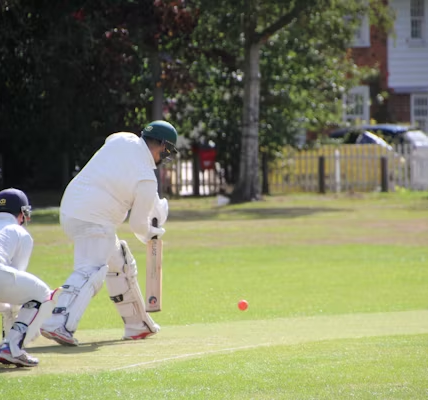Pep Guardiola, widely considered one of the greatest football managers of all time, has transformed the sport with his innovative tactics and unmatched footballing intellect. His career, both as a player and as a manager, has been one of incredible success, with a legacy that continues to influence modern football at the highest levels. From his tactical revolution at Barcelona to his continued dominance with Manchester City, Guardiola’s journey is filled with accolades, challenges, and a philosophy that has reshaped the game.
In this article, we will explore Guardiola’s playing career, his managerial career, his revolutionary footballing philosophy, and the lasting impact he’s had on global football.

Early Life and Playing Career
Pep Guardiola was born on January 18, 1971, in Santpedor, Catalonia, Spain. His passion for football began at an early age, and his talent was apparent from the start. Guardiola joined the youth ranks of FC Barcelona at just 13 years old and soon made a name for himself in the famous La Masia academy.
He debuted for Barcelona’s senior team in 1990 at the age of 19. Under the guidance of coach Johan Cruyff, Guardiola became an essential part of the team, playing as a defensive midfielder. His intelligence on the field, exceptional passing range, and vision made him an ideal fit for Cruyff’s “Total Football” philosophy. As Barcelona became one of the most dominant teams in Europe in the early 90s, Guardiola emerged as a key player, helping the team win numerous trophies, including the coveted UEFA Champions League in 1992.
Guardiola played for Barcelona until 2001, amassing numerous La Liga titles and domestic cups. After leaving Barcelona, he played for clubs such as Brescia and Roma in Italy, and later, Al Ahli in Qatar.
Transition to Management: Barcelona B
After retiring from playing in 2006, Guardiola quickly made the transition to coaching. He took over the reins at Barcelona B, the club’s reserve team, in 2007. Here, Guardiola was tasked with developing young talents and preparing them for the senior team.
His success at Barcelona B caught the attention of the Barcelona hierarchy, who were looking for a new manager to replace Frank Rijkaard. In 2008, Barcelona made the bold decision to promote Guardiola to the first team.
Barcelona: The Era of Total Football
In his first season, he guided the team to an incredible treble: La Liga, the Copa del Rey, and the UEFA Champions League. This achievement was groundbreaking and signified the dawn of a new era in football.
Guardiola’s style of play, often referred to as “Tiki-Taka,” became a blueprint for teams worldwide. This system emphasized possession, quick passing, and relentless pressing. Barcelona’s attacking play was mesmerizing, with players like Lionel Messi, Xavi Hernandez, and Andres Iniesta at the heart of the team. Guardiola’s tactical acumen ensured that Barcelona dominated both domestically and internationally.
One of Guardiola’s most significant achievements was transforming Barcelona into a team that not only played beautiful football but also achieved consistent success. Under his leadership, Barcelona won three consecutive La Liga titles (2009, 2010, 2011) and two Champions League titles (2009, 2011), among numerous other trophies.
Bayern Munich: The Challenge of Reinvention
In 2013, after four highly successful years at Barcelona, Guardiola made the bold decision to leave Spain and take on a new challenge in Germany. He took over at Bayern Munich, a club that had just won the treble under Jupp Heynckes.
Guardiola’s time at Bayern Munich was marked by continued domestic dominance, with the team winning multiple Bundesliga titles. However, despite his success in Germany, his tenure was marred by a series of high-profile disappointments in the UEFA Champions League. Bayern failed to win the prestigious competition during his time in charge, despite consistently being one of the favorites.
Manchester City: The Final Frontier
In 2016, Guardiola made the move to England, taking over at Manchester City. The Premier League presented a new challenge, one that required Guardiola to adapt his methods to the unique demands of English football.
City’s ownership had invested heavily in the club, and there was a strong desire to bring the team to the forefront of European football. Guardiola’s first few seasons at Manchester City were marked by a gradual process of building a team that could execute his tactical ideas at the highest level.
FAQs
What is Pep Guardiola’s managerial style?
Pep Guardiola is known for his possession-based, attacking style of play, often referred to as “Tiki-Taka.” His teams are also known for high pressing, working collectively to win back possession as soon as they lose it.
This approach maximizes space, creates numerical superiority, and facilitates fluid movement. His system requires intelligent, technically gifted players who can make quick decisions under pressure.
Where did Pep Guardiola play football?
Guardiola had an illustrious playing career primarily at FC Barcelona, where he spent most of his time between 1990 and 2001. As a player, he was known for his intelligence on the ball, strong passing ability, and leadership in midfield. Guardiola also played for clubs like Brescia and Roma in Italy, before concluding his playing days at Al Ahli in Qatar.
What is Pep Guardiola’s most successful season?
Pep Guardiola’s most successful season came in 2017-18 with Manchester City, where his team set multiple records. City became the first team in Premier League history to accumulate 100 points in a season. They also scored 106 goals, marking an incredibly dominant campaign that showcased Guardiola’s tactical prowess. The team played an attacking, fluid style of football that left a lasting legacy on English football.
Has Pep Guardiola ever won the UEFA Champions League?
Yes, Pep Guardiola has won the UEFA Champions League twice as a manager, both with Barcelona. The first victory came in 2009, when Barcelona defeated Manchester United 2-0 in the final.
His second Champions League win came in 2011, when Barcelona defeated Manchester United 3-1 in the final. It is considered one of the best performances in a Champions League final, with Guardiola’s tactics being lauded worldwide.
Guardiola’s Manchester City also claimed their first Champions League title in 2023, completing a historic treble.
In Summary
Pep Guardiola’s journey from player to manager is a testament to his passion, vision, and commitment to the beautiful game. From revolutionizing Barcelona to dominating English football with Manchester City, Guardiola has consistently proven himself as one of the best football minds in the world.
His tactical innovations, commitment to playing beautiful football, and ability to adapt to different challenges have made him one of the most successful and influential managers in the history of the sport. As his career continues to unfold, Guardiola’s legacy will undoubtedly inspire future generations of footballers, coaches, and fans alike.
To read more, click here



